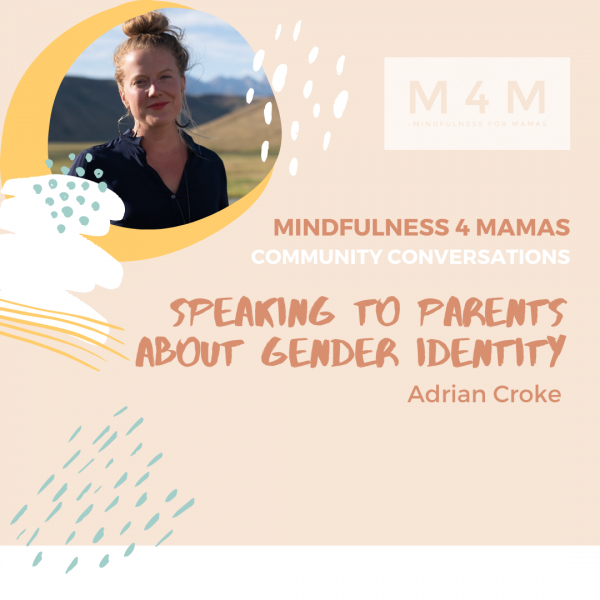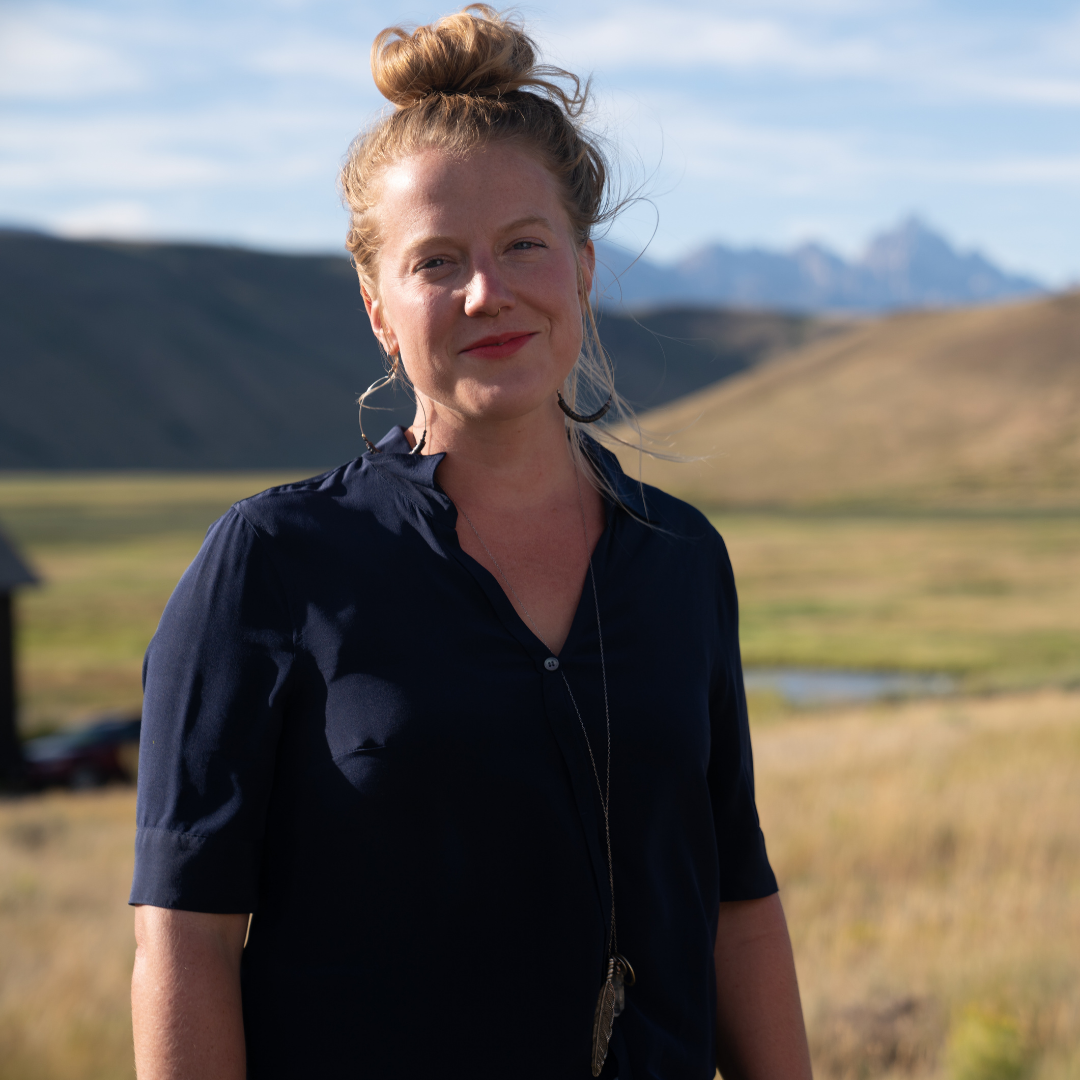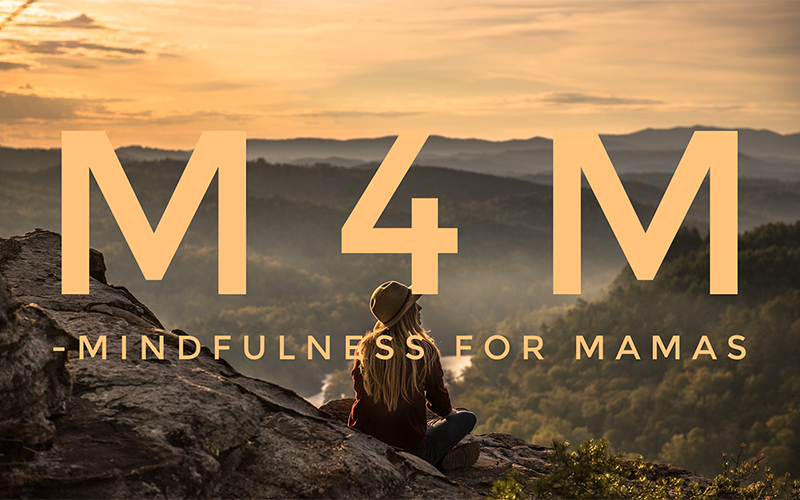Speaking to Parents about Gender Identity and Stereotypes

What’s all the fuss about gender identity? Is there a difference between transgender and non-binary? Is this a thing in our community? Why should mamas care? What is the connection between gender stereotypes, our experiences as people who identify as women and mamas, and the growing non-binary movement? How does all this relate to creating a safer world for our children?
In this Community Conversation, we address these questions and more with Adrian Croke, Director of Education and Prevention at Community Safety Network.
 About Adrian Croke
About Adrian Croke
Adrian Croke (she/her), grew up in New York City blocks away from the location of the Stonewall Riot. She attended a Quaker high school in Manhattan, which fostered what would be a lifelong pursuit of activism. Adrian graduated from Macalester College in St. Paul, MN, spent three and a half years in the Peace Corps in West Africa, and found her way to Jackson in 2012. She worked many years in outdoor and adventure education, before pivoting her career to human services. Before working for Community Safety Network, Adrian worked for the Teton County Health Department teaching sexual health education across the county and leading the department’s STD and unplanned pregnancy prevention programs. Now, she has her dream job working as CSN’s Director of Education and Prevention. Adrian is passionate about creating a safer community, especially for our young people. When she steps away from work, she’s climbing, boating, cooking, writing poetry, and dreaming of her next vacation.
The intention of this conversation: Space of learning, if unsure of the most respectful language, feel free to just express that or send a private message to Adrian. Our expectation of this conversation is to be an opportunity for information sharing, like we will talk about language and vocab, pronouns, and relevant research, but this will mostly be a conversation.
Vocabulary: Gender identity is different than sexual orientation, trans/cisgendered, Transgender vs. non-binary.
Transgender: an adjective that describes a person who does not identify as the gender they were assigned at birth.
Cisgender: an adjective that describes a person who identifies as the gender they were assigned at birth.
Language and using the “correct” words can be very stressful, and I see this stress shut a lot of adults out of these conversations and learning because they don’t want to be wrong. I get it, I love being right! But, when it comes to being respectful of marginalized identities, if you do not hold that identity, it’s likely you’re going to make some mistakes. And it’s okay - that’s how we learn, right? Don’t let the fear of being wrong keep you from having the conversation. If we don’t talk about hard things, they will never change, and we won’t learn. Honestly, diversifying one’s social media feeds can really help keep you up to date about terminology.
More transgender language support:
Something to keep in mind: do not refer to the person in the past tense with their “previous gender” or their dead name - once someone identifies as trans or non-binary, changes their name or identity, only refer to that gender/name/identity. For example, saying “I knew Adrian when she was Charlie and a “he,” is not a respectful thing to say. Of course, this might change from person to person, but these are generally helpful norms.
Here’s the deal with Pronouns (she/her/hers or he/his or they/their): Pronouns are important, other than simply using a person’s name, pronouns are the way people identify one another. To share your own pronouns is to open up the door and normalize your own decision making on how we want to be referred to on the basis of gender identity.
Diversitize your social media feed: A simple step that you can make to change your view on gender identity is to divertize your social media feed. Following different accounts can open up your mind to viewing gender differently.
Links of resources and supported material:
Terminology: https://pinkmantaray.com/terminology
Learn and Connect - Parents & Family: https://www.genderspectrum.org/audiences/parents-a...
Suggested Instagram account to follow to diversities your feed - ALOK: https://www.instagram.com/alokvmenon/
LGBTA + JH: https://www.instagram.com/lgbtq_jh/
Netflix recommendations: Documentary “Disclosure” is a fantastic resource for understanding the trans experience. “She Ra: Princesses of Power” is AMAZING. An animated series free of gender binary and heteronormativity!
What’s next?
We will be encouraging our mamas to watch a series of videos that discuss gender identity. Reflecting and building empathy on how gender identity has impacted our lives is a great place to begin. We will have more conversations like this one to continue having dialogue together to broaden our understanding on gender identity to better ourselves and the way we parent.
Suggested Videos to watch:
- Girls 6-18 talk about body image: https://www.youtube.com/watch?v=5mP5RveA_tk
- Killing us Softly 4: https://www.youtube.com/watch?v=jWKXit_3rpQ
- Always “like a girl” https://www.youtube.com/watch?v=XjJQBjWYDTs&feature=youtu.be
- Redraw the balance: https://www.youtube.com/watch?v=kJP1zPOfq_0
- “The mask you live in” Trailer: https://www.youtube.com/watch?v=hc45-ptHMxo
- Tough Guise 2 Teaser: https://vimeo.com/75781134
Reflective questions to consider asking ourselves:
- What emotions come up for you?
- Are there any comments you remember hearing growing up that has impacted how you see yourself?
- How old were you when you started to feel critical of how you looked?
- Are you still exhibiting that today?
- Do you recognize comments people say now about you and how does that make you feel?
- What were you told growing up when it came to gender identity? To be a girl is ____. To be a boy is _____.
- Did you recognize any internal push back with these structures?
- Do you evoke positivity in your body? If no, why?
- What do you want for your kids?
- Have you had discussions or made in-passing comments that underlie gender identity expectations?
- What do you hope for, for kids today?
- Are you hopeful you can change your self-image despite the damage of the past?

